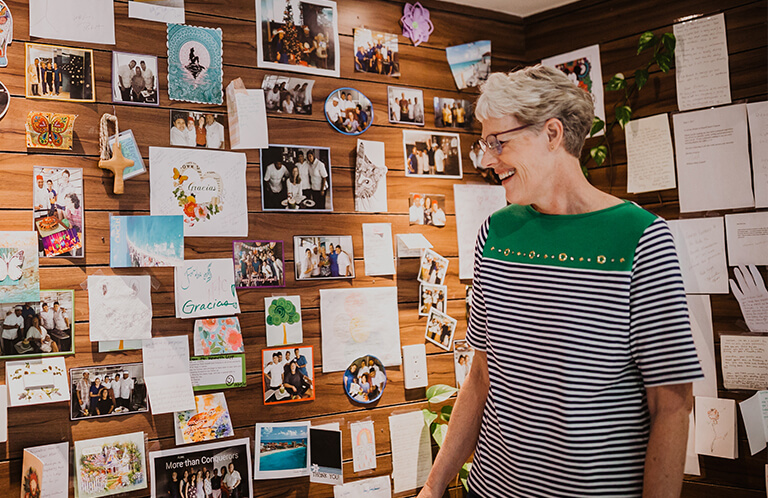With cancer diagnoses on the rise and fatalities projected to reach over 13 million by 2030, it’s no wonder the cancer epidemic has become an almost universal household concern. However, increasingly worrisome statisticsdon’t mean you should live in fear. The World Health Organization also reports that“about one-third of all cancer fatalities can be prevented by modifying or avoiding key risk factors.” Watch the videos below to learn what these risk factors are, and how you can start utilizing cancer prevention tips for everyone right now.
6 Principles for Cancer Prevention
Before developing your cancer prevention strategy, it’s important to understand exactly what a successful cancer prevention plan should include. In order to minimize your risk, there are six fundamental principles that a comprehensive cancer prevention strategy should address. Find a brief overview of them here below.
-
- Building the immune system: As the body’s natural defense mechanism, a healthy immune system can recognize cancer cells forming and prevent them from growing into serious diseases. This means that the development of cancer itself is a telltale sign that the immune system is not properly functioning. In order to limit your cancer risk, your cancer prevention plan should place a special focus on supporting the immune system and restoring it to optimal functioning.
- Oxygenation: Since cancer thrives in low oxygen environments, maintaining healthy oxygen levels is essential for cancer prevention. Eating live, healthy food and incorporating regular physical activity in your daily routine can help ensure oxygen is delivered on a deep, cellular level.
- Restoring gut health: With about 75% of immune health originating in the gut, keeping a balanced gut microbiome goes hand in hand with building the immune system. The process to restore gut health will vary based on the individual, but can entail detoxification, dietary modifications, and/or lifestyle changes.
- Detoxification: Unfortunately, as a byproduct of a modern-day environment, our bodies are constantly being exposed to toxins. Whether in the soil, water, air, or food supply, exposure tosome extent is unavoidable. To limit cancer risk, it’s best practice to avoid toxins when possible, and regularly detox the body to prevent buildup from impairing health over time.
- Emotional Healing: Though sometimes hard to measure, there’s no doubt that a tangible mind-body connection exists. In some cases, this means a physical manifestation of disease can be traced back to an emotional source. Comprehensive preventative cancer care includes the deep emotional work of releasing past traumas, conflicts, and negative thought patterns — before they become stored in the body.
- Nutrition: All of the functions that maintain health in our bodies — our immune system, digestive system, blood circulation, etc. — operate off the nutrients that we give them. By consuming clean, high-quality, non-GMO, plant-based foods, you can start preventing cancer at the primary source of nourishment and provide your body with the nutrients it needs to function properly.
The Importance of Food in Cancer
We already know that diet and nutrition are important for your cancer prevention strategy… but just how big of a role do they play? According to the American Institute for Cancer Research, the answer, in short: a pretty major one! The world-leading cancer prevention organization’s third expert report,Diet, Nutrition, Physical Activity and Cancer: A Global Perspective, amassed and analyzed data from multiple scientific studies to determine the best ways to prevent cancer. Overall, their panel of researchers found strong evidence that “processed meat is a convincing cause of cancer,” and urges readers to opt for a diet rich in whole grains, vegetables, fruits, and beans.
Not only are such garden-based foods low-risk, but researchers found they actively work to protect the body from cancer, thanks to the natural anti-cancer phytochemical nutrients they carry. As summarized by another study at the Northern Ontario School of Medicine, “plant-based nutrition has been shown to protect against the 15 leading causes of death in the world, including many cancers, and may offer benefits as a disease-modifying tool to improve the management and treatment of these conditions.”
For optimal results, our Hope4Cancer medical experts suggest a diet that’s roughly 80% vegetables and 20% fruits; avoids processed food and GMO’s; and includes clean, filtered water without contamination.
Emotions & Cancer Prevention
It’s no secret that emotions play a powerful role in, and sometimes even dictate our physical experience. For example, this 2017 study observing the relationship between physical and emotional states effectively demonstrated that “positive changes in emotional valence [are] associated with improvements in physical condition, while negative changes… [are] associated with the aggravation of pain and fatigue.”
Through brain imaging techniques, another study funded by The National Institute of Health revealed that when positive emotions continuously activated the ventral striatum, also known as the reward center of the brain, and increased a person’s sense of wellbeing, a number of healthy physical changes occurred in the body. Furthermore, yet another study found that this reward system activity boosted antibacterial immunity and immune modulation, “establish[ing] a causal link between reward system manipulation and tumor growth.”
In other words, emotions have a powerful and proven effect on hormone regulation, immune function, and as a result, our development, progression, and recovery from disease. As part of an effective cancer prevention strategy, individuals should focus on releasing past traumas and developing positive thought patterns, maximizing the reward center of the brain.
Meditation & Prayer
As scientists seek to better understand the mind-body-spirit connection, research has consistently supported the ability of meditation and similar spiritually-based techniques to benefit the physical body. Consider this 2017 study, which lists an impressive number of physical improvements from participants in a meditation program, including decreased heart rate, blood pressure, circulating stress hormones, levels of anxiety, and enhanced immune function. Not only do these spiritual practices indirectly prevent cancer through their effects on the immune system, but additional studies suggest they have an even more powerful direct impact.
In 2014, a team of researchers compared breast cancer survivors who participated in a meditation program vs. a control group. (find their research here: https://acsjournals.onlinelibrary.wiley.com/doi/full/10.1002/cncr.29063) At the end of three months, they found that “[T]elomeres — the protein caps at the end of our chromosomes that determine how quickly a cell ages — stayed the same length in cancer survivors who meditated… On the other hand, the telomeres of cancer survivors who didn’t participate in these groups shortened during the three-month study.” These protein caps are essential for preserving cellular DNA, and the longer they are, the more effectively they can help protect against disease. Thus, when used proactively instead of retroactively, meditation and spiritual practices hold immense preventative power, improving both mental and biological wellbeing.
What to Avoid to Prevent Cancer
Now that you know what to implement in your cancer prevention strategy, it’s important to know what to avoid. There are three main high-risk cancer-causing agents to look out for.
-
- Electromagnetic radiation: Increased exposure to electromagnetic radiation, emitted by cellular phones, WiFi, 5G, etc. has been proven to be hazardous to health.Studies report that current daily exposure levels can cause carcinogenicity, infertility, and cell mutations or damage — and that the longer the exposure, the greater the damage. Limit your exposure to these devices by turning them off and storing them somewhere away from your physical body as much as possible.
- GMO’s: In correlation with The American Institute for Cancer Research’s findings, a healthy, low-risk cancer diet consists primarily of natural, plant-based food that isn’t processed and stays as close to Mother Nature as possible. Genetically modified foods are known to be toxic for the body, and their recent mass production is thought to be a leading cause of the rise of cancer.
- Negative thoughts: Reinforcing the preventative power of positive emotions, it’s important to avoid dwelling in negativity. While it’s normal and healthy to experience and subsequently release feelings of sadness, holding on to them creates negative thought patterns that translate into physical health and wellbeing.
Want More Cancer Prevention Tips?
For more tips and healing resources, subscribe to our email list, where we share the latest research in cancer prevention, treatment, and innovation, through the signup form at the bottom of the home page of our website!


Your thoughts create everything! I know this as a true fact! The bluroom also helps. Information is on Bluroom.com
Had breast cancer. The tumor was removed and no other cancer in body was found. They wanted me to do chemo and radiation but I said no. I am currently trying to build my body immune through natural food and sublimates. I am currently cancer free for 1 year.
I am attempting to eat well, exercise and stay positive through prayer. I drink pure wAter and have my house with s pure air devise on my furnace. Can’t do much more.
Really enjoyed the simple and quick videos!
Thank you Dr.Tony😀
God Bless you and your team
I have cancer in my lymph nodes from prostate cancer. My doctor tells me that there is nothing he can do about it tell it move some where else. Is there something l can it naturally.
Hello Clyde,
At Hope4Cancer our treatments are able to treat all forms of cancers at all stages as well as various auto immune diseases. The best thing we can do at this time is put you in touch with a team member that can get you a free consultation with a physician.
Simply visit https://hope4cancer.com/schedule-a-call/ and fill out a few short questions. Once completed, you do have the option to book your own appointment time with an Admissions Counselor. If you do not book your own appointment, a member from our team will be calling as soon as possible. You are also welcome to call into our offices during business hours, Monday-Friday 8AM-5PM PST, Saturday 9AM-1PM. US # 1.888.544.5993 / International #: +1.619.669.6511
Someone my dad knows was diagnosed of cancer 6 years ago at 32 years old. She got told she is going to die a painful death and that chemo was the only way out. Today, she is the picture of health.
We are so happy to hear she is doing well!
Can you address the studies indicating that grains(almost all) are resulting in metabolic syndrome and should be avoided? Ie Dr Steven Gurdy, Dr. Joel Wallach. I’ve been trying to avoid consuming grains, however miss them, and have found no obvious symptomatic results. Thank you for all of your valuable info.
Dr. Tony has always been a proponent of a well-balanced plant-based diet, including grains that do not contain gluten. In his Garden Food Plan, he favors a balanced, plant-based diet. While he favors vegetables and fruits, preferably organic and non-GMO, as being the major component of your meal, he says that there is absolutely no harm in adding a controlled portion of gluten-free, non-GMO grains to your meal. In his book, Hope for Cancer, Dr. Tony says, “Basmati rice is perhaps the most nutritious rice, and I highly recommend it.” He also recommends quinoa, oatmeal, lentils and all kinds of beans (of course – be mindful if you have diabetes!).
Not having grains in your diet can actually throw off your metabolism. A paper published in the Journal of Nutritional Health and Food Science which you can access at this link (https://www.ncbi.nlm.nih.gov/pmc/articles/PMC5609487/) reviews several studies that show that whole grains are actually important in fixing metabolic problems in the body.
So I would stay away from advice that labels an important food group as a “no-no.” We typically find out later on that many people who follow those “diets” were actually simply following ill-informed fads, and many of the followers can end up hurting their long-term health.
I would recommend purchasing Dr. Tony’s book available at amazon (https://www.amazon.com/Hope-Cancer-Principles-Empower-Hardcover/dp/1732903301/ref=sr_1_2?keywords=hope+for+cancer&qid=1585184628&sr=8-2) and learn more about his Garden Food Plan. Hope that helps.
I am a certified holistic cancer coach and I really admire you and your work, thank you Dr. Tony Jimenez.
Thank you for the kind words and support. We appreciate you!